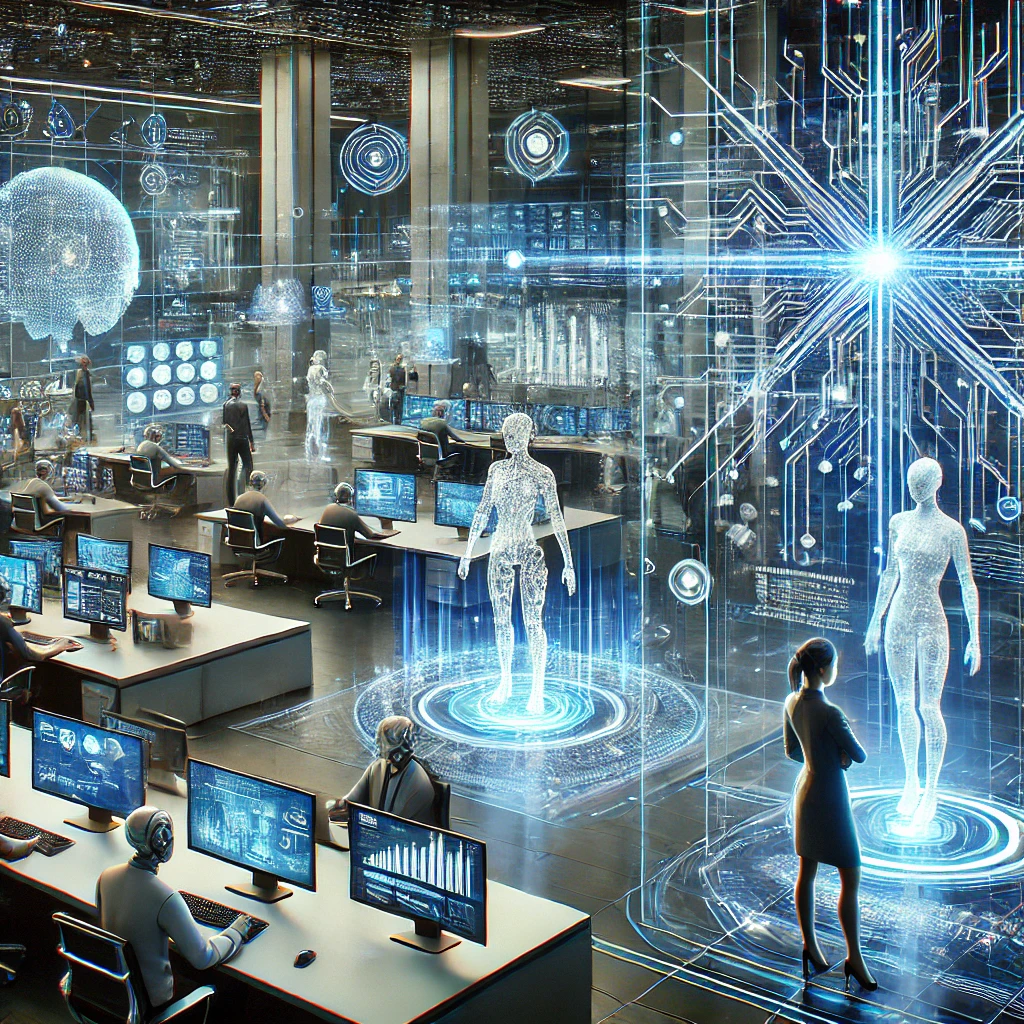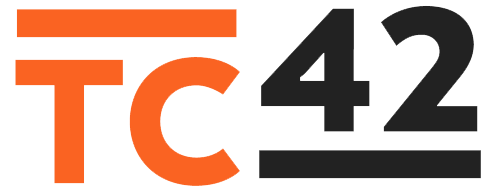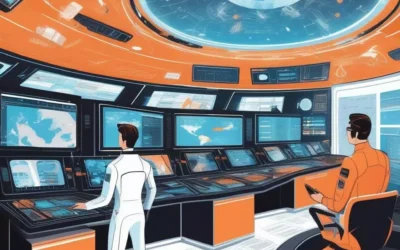Operational Excellence 203x: The end of the company as we know it

📌 In November 2022, shortly before the big hype about #GenerativeAI, I wrote a blog post titled ‘What is process management 2030?’.
Over the past two years, it has become clear that the corporate world will change more radically than we would have thought:
💥 We should think of the combination of process management, automation and AI not just as a technical tool, but as a transformative force that will redefine the way we think about companies and the future of work.
✨ Instead of fixed predictions (which are ‘difficult, especially when they concern the future’), I present 10 topics with hypotheses for discussion on what the corporate world will look like in the next decade.

Operational Excellence 203x: The end of the company as we know it
Imagine a world where companies no longer have managers, hierarchies dissolve into networks, and
AI makes decisions faster than we ever could.
Welcome to 203x – Operational Excellence redefined.
- Infinite Adaptation
- Intelligent systems understand a company’s business model, including its value proposition, target groups, business processes, supply chains, cost structures, and revenue streams. The patterns of successful business models are stored in large business model repositories and serve as the foundation for transformation decisions.
- Digital twins of entire organizations are used to simulate various scenarios for business development.
- Companies evolve into self-learning structures, constantly reinventing themselves. Strategic decisions are largely prepared and supported by intelligent systems, enabling decision-making that is data-driven rather than hierarchical.
- The AI Nexus: Connecting Processes and Decisions
- Tactical and operational goals will evolve automatically. AI continuously learns from global and internal data to adjust processes in real time. Companies require only guardrails – AI orchestrates everything, from the first customer interaction to supply chain management and payment processing.
- Traditional process models are replaced by real-time systems that enable companies to rewrite their own DNA. Much of the business logic resides in autonomous agents. AI becomes the heart and brain of the corporate world.
- Autonomous agents are deployed in almost every area, managing both end-to-end processes (e.g., customer contact to order, customer issue to resolution) and specialized functional topics (e.g., patent law, customs regulations).
- In both B2B and B2C contexts, key account agents provide round-the-clock support for important customers and act proactively.
- Autonomous collaborative agents interact closely with their counterparts in other companies (customers, suppliers) to manage entire supply chains and synchronize information and material flows. Human intervention in rescheduling supply chains is only required in exceptional cases.
- Human-Machine Synergies
- In hybrid teams, humans collaborate with supportive and autonomous AI agents. These virtual “colleagues” work alongside humans, participate in meetings and decisions, and continually adapt their knowledge to align with goals, preferences, and tasks.
- Immersive, virtual offices (holo-workspaces) enable seamless collaboration among humans, IT systems, and machines, regardless of physical presence.
- Human-machine collaboration becomes so seamless that the distinction between the two becomes obsolete. Brain-computer interfaces allow human thoughts to directly influence processes.
- Adhocracy and Collaboration Replace Hierarchy
- Companies abandon rigid hierarchies and structures. Organizations become flexible, dynamic networks where tasks are autonomously assigned based on project needs.
- Hybrid teams from different companies work seamlessly together as intelligent systems synchronize processes and resolve conflicts automatically.
- Embedded Compliance
- Compliance becomes invisible, as it is fully automated and integrated into task execution.
- Autonomous systems actively optimize processes while ensuring real-time ecological and social responsibility.
- The Platform Economy of Processes
- Companies purchase processes and specialized tasks modularly as process/task as a service.
- Low barriers to market entry create specialized providers offering standardized business processes and niche tasks.
- Radical Data Integration
- Business and environmental data (e.g., weather, global markets, customer sentiment) flow seamlessly together, driving detailed process execution (e.g., price adjustments, material purchase initiations).
- Resilience Through Predictive Power
- AI not only reacts to situations but also accurately predicts events (e.g., crises, demand fluctuations) and initiates measures before they occur.
- Companies and governments share anonymized data on disruptions (e.g., supply chain risks, cyberattacks) through global resilience networks. Collective AI helps mitigate risks for all participants, strengthening the resilience of entire industries.
- Human-Less Business
- Fully AI-driven companies operate without human intervention, autonomously developing, producing, and selling products. These organizations independently identify market changes, create new products, and optimize processes on the fly.
- AI-powered networks autonomously manage business models without the need for central entities. Decentralized Autonomous Organizations (DAOs) revolutionize business models – fully decentralized and autonomous.
- Empathy-driven Automation
- Emotional intelligence in processes: AI responds not only rationally but also emotionally, e.g., to customer feedback or employee sentiment.
- Empathetic processes: AI-powered customer interactions create emotional connections through personalized and empathetic responses.
for Discussion
- How do we handle the growing dependence on AI, especially when it fails or is manipulated?
- What role remains for humans in the corporate world of 203x? Are we reduced to creative innovators or ethical guardians in an increasingly automated world?
- Who will regulate AI-powered companies when they are entirely autonomous?
- What will the transition look like? What happens to traditional corporate structures that fail to keep up with the pace of technological change? Will new organizations emerge from the ashes of the old ones?
- Is this the end of competition? Will AI-driven transparency and data integration create a world where collaboration replaces rivalry?
more Articles
Why process mining is just the beginning
Discover the numerous extensions of process mining that form the new ‘enterprise mining’ approachProcess...
Why process mining has reached the ‘must-have’ tipping point
Discover why process mining has become a ‘must-have’ for process analysis and optimizationSince the turn of...
How to ensure efficient communication of guidelines and policies across an organization
Find out how a digital communication solution can enable businesses to ensure compliance of new rules and...



